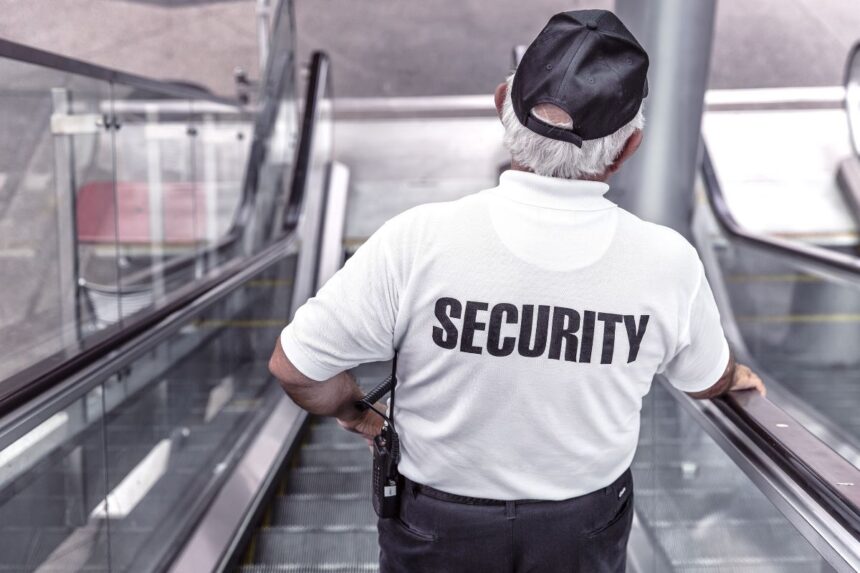Role of Security Guards in Managing Workplace Conflicts
Workplace conflicts are a natural occurrence in any professional setting, often arising from differing opinions, miscommunications, or interpersonal tensions. If not handled appropriately, these conflicts can escalate, disrupting productivity and potentially leading to unsafe conditions. Security guards play a pivotal role in managing these situations effectively, ensuring the workplace remains a safe and harmonious environment. Their training in conflict resolution, de-escalation, and adherence to workplace policies makes them vital in mitigating disputes and preventing escalation. Let’s delve deeper into their contributions.
1. De-escalation of Conflicts
One of the most critical responsibilities of security guards is to de-escalate tense situations. Workplace disagreements, if left unchecked, can spiral into confrontations that affect not only the individuals involved but also the overall morale of the organization. Security guards are trained in communication techniques designed to calm agitated individuals, diffuse hostility, and foster dialogue between conflicting parties. Their ability to remain calm under pressure and act as neutral mediators often helps in resolving disputes before they escalate further. By taking control of the situation and acting as a stabilizing force, they protect both the emotional and physical well-being of everyone involved.
2. Enforcing Workplace Policies
Security guards play a vital role in ensuring that workplace rules and regulations are followed consistently. In situations of conflict, adhering to established policies is critical to resolve disputes in a fair and unbiased manner. Security guards are familiar with company protocols, which allows them to intervene without favoritism or partiality. For example, they can ensure that disciplinary actions, such as removing an individual from the premises, are conducted in accordance with workplace procedures. This adherence to protocol not only ensures fairness but also reinforces the organization’s commitment to maintaining order and professionalism.
3. Monitoring and Early Detection
One of the most proactive roles of security guards is their ability to monitor workplace dynamics and identify early warning signs of potential conflict. Through surveillance, regular patrols, and interactions with employees, they remain vigilant about behaviors or situations that might escalate into disputes. For instance, noticing consistent tension between team members or observing verbal disagreements in common areas can allow security guards to intervene before the situation worsens. Their proactive approach helps mitigate risks and ensures that minor disagreements do not evolve into full-blown conflicts, maintaining workplace stability.
4. Providing Support During Investigations
When workplace conflicts require further investigation, security guards play an instrumental role in maintaining order and supporting the investigative process. They can act as witnesses to incidents, document events, and collect evidence, such as surveillance footage, to help HR or management teams resolve the issue. During investigations, they ensure that all parties involved feel safe and that the process is conducted fairly and without bias. Security guards may also monitor meetings between conflicting parties to prevent further tensions and ensure that everyone adheres to professional conduct throughout the resolution process.
5. Creating a Sense of Security
The presence of security guards in the workplace offers more than just physical safety—it provides emotional reassurance as well. Employees feel more secure knowing there are trained professionals available to handle conflicts and protect their well-being. This sense of security is particularly important in high-stress or high-conflict environments where disputes are more likely to occur. Knowing that a neutral party is present to step in as needed can discourage employees from engaging in aggressive or disruptive behavior. Ultimately, this contributes to a calmer, more productive workplace culture.
Relevant Services
The role of security guards extends across various industries, from healthcare to corporate environments. To explore how security services can enhance workplace safety, take a look at these tailored solutions:
- Hospital Security Services: Ensuring the safety of staff and patients in sensitive medical environments.
- Corporate Security Services: Maintaining professionalism and security in corporate offices.
- Comprehensive Workplace Conflict Management: Learn more about their specific role in conflict resolution.
- General Security Services: A broad range of customizable services for various industries.
Conclusion
Security guards are more than just enforcers of rules—they are key players in maintaining workplace harmony and safety. Through conflict de-escalation, policy enforcement, and proactive monitoring, they contribute to a positive work environment. Their ability to manage disputes with professionalism ensures that the workplace remains productive and safe for all. By employing trained security personnel, organizations can demonstrate their commitment to fostering a secure and harmonious environment for their employees.







